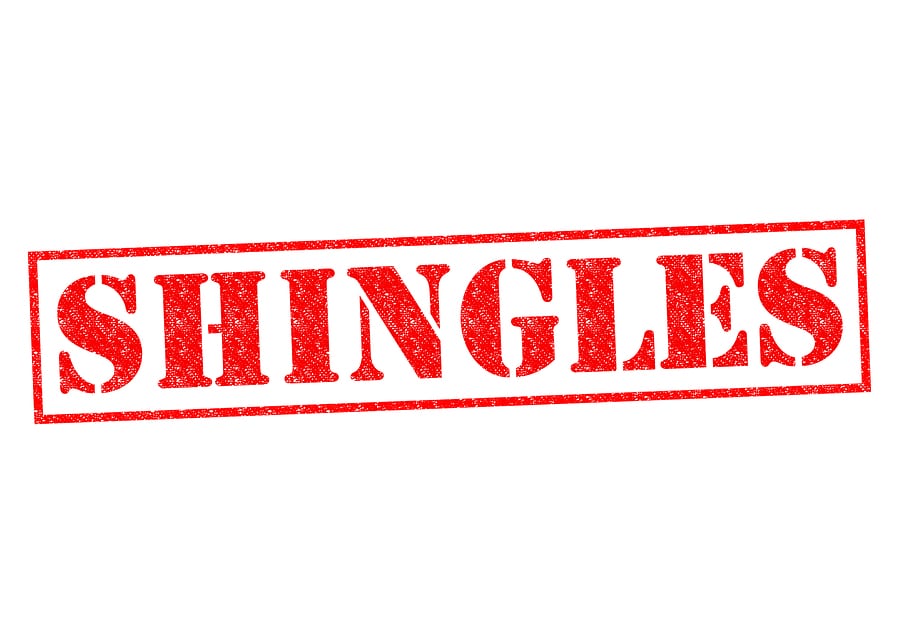Because shingles is a disease that affects your loved one’s nerves, it can be difficult to identify early symptoms before feelings of burning, shooting pain, tingling, itching, a rash, and blisters may all come.

It does not take all of these symptoms to indicate the onset of shingles, it is important to determine symptoms early.
For that reason, elderly care is helpful in making sure that some of the rash or blisters that your loved one may not see or feel are noticed by an elderly care specialist who is available to help on a daily basis.
Shingles is caused by the same virus that causes chickenpox remaining inactive in the nerve tissue near the spinal cord and brain. Years later, the virus may reactivate as shingles. Shingles is not a life-threatening condition, but it is very painful and it is essential to have early diagnosis and treatment from a doctor, making it also very helpful to have the help of elderly care. Vaccines can help reduce the risk of shingles, while early treatment can help shorten a shingles infection and lessen the chance of complications.
The Symptoms of Shingles
Most often your loved one will have shingles on one side of their body, and it will be only in a small area rather than all over. Most often, shingles occur as a band of rash or blisters that appear around one side of their waistline, but in other places where they can’t see it, elderly care will be helpful in seeing some of the visible symptoms.
Some of the most common symptoms include:
- Burning, tingling, or numbness of the skin
- An ill feeling (chills, fever, stomach ache, or headache)
- Blisters
- Sensitive skin
- Itching (in the range of mild to even strong pain)
Based on the location of shingles on your loved one’s body, it could also cause further symptoms (e.g. hiccups or even loss of vision). Some people have very mild symptoms, like a little itching, while others can be much more serious, such as serious pain felt from the slightest touch or breeze.
How Long Does Shingles Last?
Most cases of shingles last three to five weeks. Shingles follow a five-step pattern:
1.) The first sign is often burning or tingling pain. Sometimes, it includes numbness or itching on one side of the body.
2.) Somewhere between one and five days after the tingling or burning feeling on the skin, a red rash will appear.
3.) A few days later, the rash will turn into fluid-filled blisters.
4.) About a week to 10 days after that, the blisters dry up and crust over.
5.) A couple of weeks later, the scabs clear up.
Most people get shingles only one time. But, it is possible to have it more than once.
Determine When to Go to the Doctor
It is best to go to the doctor if your senior loved one has a rash of any sort. They might have shingles at all, so speak to the doctor as soon as possible. Be sure not to let the symptoms of a rash persist for longer than three days from the beginning before seeing the doctor because it could become much more serious after that. The doctor will confirm a shingles diagnosis and make a treatment plan.
While there is no cure for shingles, treatment is important with drugs that fight the virus and dry up the rash that could become worse if untreated. Luckily, shingles treatment can be completed at home and your loved one will not have to stay in the hospital. However, in order to make sure that treatment is followed properly, elderly care may be helpful to make sure that the rash clears up effectively and quickly.
If you or an aging loved one are considering hiring Home Care Services in Elizabeth, NJ, call the caring staff at Helping Hands Home Care today at 908-418-4299. Providing Home Care Services in all of Northern and Central NJ, including Clark, Westfield, Cranford, Scotch Plains, Rahway, Linden, Summit, Edison, Elizabeth, Mountainside and the surrounding areas.
Sources
Nia.nih.gov
Mayoclinic.org
After graduating from Seton Hall University with a BS in finance Helping Hands Homecare’s Owner / President, Robert D’Arienzo, went to work on Wall St. for six years. However, after Robert’s grandmother became ill with stomach cancer Robert and his family needed to find assistance in the home for her. After many trials and tribulations Robert could see that there was a great need for quality home care services here in NJ and loved the idea of being able to assist other families who were going through what his family went through with his beloved grandmother.
Thus, Robert had found his passion. After almost a year of preparation Robert opened Helping Hands Homecare in 2003. Robert wanted Helping Hands Homecare to focus on providing the highest quality of caregivers, exceptional customer service, and providing a service that familys could depend on in their time of need. Since then Helping Hands has assisted hundreds of individuals with the simplest of needs to more complex cases while preserving those standards set out many years ago.
Robert is a Google Verified Author
- How Companion Care Can Help Your Parent Avoid Depression - April 22, 2025
- How Alzheimer’s Care Helps Family Caregivers - April 7, 2025
- How In-Home Care Can Help Seniors Recover from Surgery or Illness - March 24, 2025




